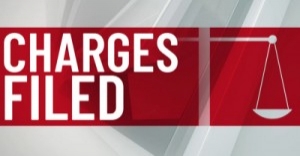The Education and Children’s Services Act 2019 will replace the Education Act 1972 and the Children’s Services Act 1985.
The new Act will come into operation during 2020, supporting South Australia's ambition to deliver world-class education.
What This Means:
- Introduced new protections for school and preschool staff and tougher penalties for those who abuse teachers and principals
- Introduced tougher penalties against those who use abusive, threatening or insulting language or behave in an offensive or threatening manner to a school staff member acting in the course of their duties – maximum fines increased to $2500.
- Extended the rules allowing public schools to bar individuals for bad behaviour so that now government preschools and non-government schools, preschools and all children’s services can do the same – maximum fine for breaching a barring order lifted from $200 to $2500.
- Made it easier for schools to get the information they need about students
- Given principals the right to request reports from a child’s previous school or preschool on academic progress and other relevant information so they can support the safety and wellbeing of the student and others.
- The department, government agencies, schools, preschools and children’s services are now explicitly permitted to share information on the education, health, safety, welfare and wellbeing of a child to support their education journey.
- The Department can now require parents/ carers to provide information, including medical and other details about a child, to help a school or preschool cater to their needs.
- Introduced a strong new approach to attendance to get kids in school and keep them there
- New tough penalties for parents/ carers who allow their child to be chronically truant – maximum fine increased from $500 to $5000.
- Introduced a positive obligation on parents/ carers to take all reasonable steps to ensure attendance, making it easier for the department to prosecute offences.
- New family conferences will support families to make voluntary arrangements to address chronic non-attendance.
- Parents/ carers are now required by law to provide a reason for a child’s absence within 5 days.
- Increased the penalty for parents/ carers who don’t enrol their child in school or an approved learning program – up from $500 to $5000.
- introduced new powers to address bullying and serious assaults
- The Chief Executive now has circuit-breaking power to direct that a child be enrolled at a different school for the health, safety and welfare of them or other students and staff in response to serial bullying or a serious assault.
- The Bill introduces new rules ensuring fair enrolment
- Students can now be redirected to a different school if they were enrolled on the basis of false or misleading information under new powers given to the Chief Executive.
- Giving more support to governing councils
- Introducing an independent fund for governing councils to pay for the costs of legal advice in relation to disputes with the department.
- Tightened the rules so that the presiding member of a governing council will need to be a parent/ carer of a student unless no parent/ carer is willing to do the job.
- Introduced clearer rules for religious and cultural activities
- Principals are now required to give notice to parents/ carers of a religious or cultural activity so they can make informed decisions about their child’s involvement.
- Children who don’t participate must now be offered an appropriate alternative activity and not suffer any detriment for not participating.
- Modernised employment provisions
- The department will now be able to directly employ a broader range of staff in schools, including nurses, social workers, youth workers, psychologists and other professionals that a school community may need.
- The department will be able to offer special remuneration to attract and retain highly skilled school and preschool leaders and teachers.
Reference:
Education and Children's Services Act, Department Of Education South Australia, Media News, 01 September 2019



 The Australian Government is rolling out unannounced spot checks across Early Childhood Education and Care (ECEC) services nationwide. This follows a successful pilot in October–November
The Australian Government is rolling out unannounced spot checks across Early Childhood Education and Care (ECEC) services nationwide. This follows a successful pilot in October–November ***WARNING: DISTRESSING CONTENT*** Victorian detectives have laid 83 additional charges against former Melbourne childcare worker Joshua Dale Brown, expanding the total number of alleged offences
***WARNING: DISTRESSING CONTENT*** Victorian detectives have laid 83 additional charges against former Melbourne childcare worker Joshua Dale Brown, expanding the total number of alleged offences In April 2025, the Fair Work Commission (FWC) issued a provisional decision recommending staged award increases to address the undervaluation of early childhood educators; however,
In April 2025, the Fair Work Commission (FWC) issued a provisional decision recommending staged award increases to address the undervaluation of early childhood educators; however, Regulatory authorities across Australia have identified staffing as a priority area, with a strong focus on ensuring educators hold valid, authentic qualifications. Unfortunately, fraudulent certificates
Regulatory authorities across Australia have identified staffing as a priority area, with a strong focus on ensuring educators hold valid, authentic qualifications. Unfortunately, fraudulent certificates Recent commentary has highlighted a striking statistic: 90% of new childcare providers in Australia are run for profit. This raises a fundamental question is this
Recent commentary has highlighted a striking statistic: 90% of new childcare providers in Australia are run for profit. This raises a fundamental question is this